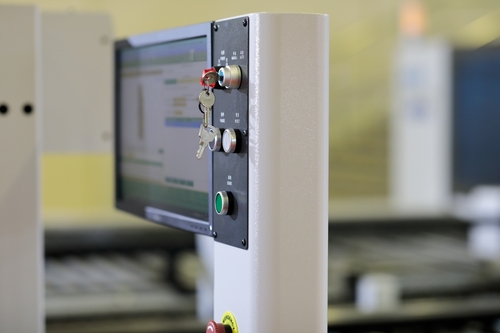Human Machine Interface (HMI) systems are revolutionising the industrial sector by reducing human errors and improving operational efficiency.
As industries increasingly adopt automation, the precision offered by HMI systems becomes indispensable. With user-friendly interfaces and real-time monitoring capabilities, these systems bridge the gap between complex machinery and human operators.
The incorporation of HMI in industrial processes enhances productivity. It ensures operational accuracy and safety. By offering actionable insights and intuitive controls, HMI systems allow operators to make informed decisions quickly, minimising the risk of costly mistakes.
Understanding HMI systems and their role in the industry
HMI systems serve as the central interface between humans and industrial machines. These systems provide operators with visual representations of data, enabling them to monitor performance, detect issues, and adjust controls in real time. From touchscreens to mobile devices, HMI systems are designed for accessibility and ease of use.
Core benefits of HMI in industrial settings
The benefits of integrating HMI systems extend beyond operational efficiency, offering enhanced control, data insights, and safety.
- Enhanced data visualisation
HMI systems present complex data in simplified formats, such as graphs, charts, and dashboards. This allows operators to interpret data efficiently, reducing errors caused by misinterpretation.
- Real-time monitoring
Constant updates from HMI systems ensure that operators stay informed about machinery performance. Real-time alerts highlight anomalies, allowing immediate corrective action.
- Customised controls
With adjustable settings, operators can tailor HMI systems to specific processes, ensuring precision and consistency.
Reducing human error with HMI technology
HMI systems are specifically designed to minimise the risk of human errors during industrial operations. Their advanced features optimise accuracy, streamline processes, and improve overall reliability.
- Simplified processes for operators
Industrial workflows often involve intricate machinery and numerous variables. HMI systems simplify these processes by automating repetitive tasks and reducing the cognitive load on operators. By presenting only the necessary information, HMI systems help prevent errors stemming from information overload.
- Predictive maintenance capabilities
Human errors in maintenance scheduling or execution can lead to equipment failures. HMI systems offer predictive maintenance features, using real-time data to identify potential issues before they escalate. This proactive approach minimises downtime and ensures seamless operations.
- Improved decision-making
With access to real-time analytics, operators can make decisions based on accurate and current information. HMI systems provide actionable insights that enable swift and precise responses, reducing the likelihood of errors during critical operations.
Enhancing workplace safety with HMI
Safety is a critical component of industrial operations, and HMI systems ensure it remains a priority. These systems integrate essential safety features into everyday workflows.
- Streamlining safety protocols
HMI systems integrate safety protocols into operational workflows, ensuring compliance with industry standards. From emergency shutdown procedures to safety alerts, these systems safeguard both operators and equipment.
- Reducing physical interaction with machines
By enabling remote monitoring and control, HMI systems reduce the need for operators to physically interact with potentially hazardous machinery. This not only minimises human error but also enhances workplace safety.
The growing importance of HMI systems in modern industries
As industries evolve, the adoption of HMI systems is becoming increasingly important. Their adaptability and scalability make them a core element of modern industrial environments.
- Adapting to technological advancements
As industries adopt smarter technologies, the role of HMI systems continues to expand. From managing advanced robotics to overseeing IoT-enabled devices, HMI systems are central to modern industrial operations.
- Addressing industry-specific challenges
Whether in manufacturing, energy, or healthcare, HMI systems cater to specific industry needs. Their flexibility and scalability make them an ideal solution for diverse operational requirements.
How do HMI systems help minimise human error in industrial processes?
HMI systems have become a cornerstone of industrial efficiency, offering a range of benefits that significantly reduce human error. By simplifying operations, improving data interpretation, and enhancing decision-making, these systems ensure seamless processes and safer workplaces.
Collaborating with trusted energy brands amplifies the advantages of HMI systems. Reputable partners bring expertise, high-quality solutions, and dependable support, ensuring your operations remain efficient and resilient. Investing in such partnerships empowers industries to achieve greater productivity, sustainability, and operational excellence.




